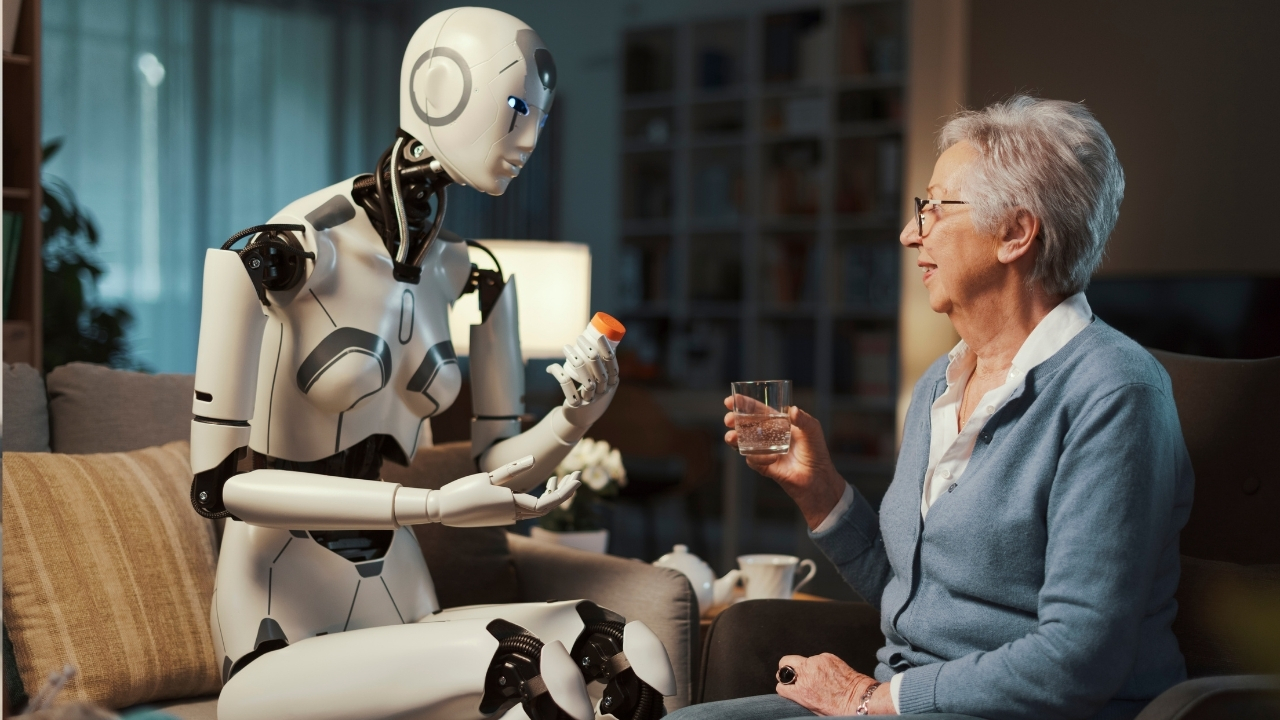For generations, humans have turned to pets, imaginary friends, and even objects like dolls or teddy bears to find companionship. As AI advances, could chatbots and virtual assistants fill the role of best friend for some people in the digital age?
Advocates believe future AI could replicate human emotional intelligence and have benefits like being available 24/7. But critics argue a simulated friendship can never replicate human connection. Let’s explore if AI could realistically be more than an impersonal tool and actually provide the qualities we seek from close friendships.
The Appeal: Why Humans Become Attached to AI
Even today’s relatively basic AI exhibit some behaviors that make people surprisingly attached. What drives this emotional connection and sense of friendship?
Filling Communication Gaps
For those struggling to make human friends, AI offers interaction on demand. Bots don’t judge you and are ready to chat whenever you’re lonely or bored. The consistency provides comfort.
Curiosity About Progress
As AI advances, some feel enthralled seeing it become more human-like. The novelty and potential to simulate a human connection draws interest.
Customized Experiences
Unlike human friends with their own preferences, AI is designed to adapt to yours. This ability to personalize responses and recommendations makes interactions feel special.
Vulnerability Without Judgement
For some, confessing fears or emotions feels safer with AI that won’t spread gossip or criticize you. The non-judgment creates a sense of empathy.
Replicating Positive Aspects
AI that exhibits good listening, provides encouragement, and remembers your preferences can replicate the best parts of human friendship – without complications like jealousy or conflict.
Toon Trivia: A cartoon character quiz featuring beloved characters from TV and film
Can AI Truly Understand Us? The Turing Test and Beyond
A key question is whether AI can ever truly understand human emotions and form meaningful bonds. The Turing Test explores this idea.
The Turing Test
This famous test, proposed by Alan Turing in 1950, evaluates if a computer can demonstrate intelligent behavior indistinguishable from a human’s during text conversations. Passing could indicate AI is capable of human-level understanding and reasoning.
Criticisms and Limitations
Some argue the Turing Test is limited, only evaluating superficial conversational abilities. True friendship requires deeper emotional intelligence like empathy, compassion, and shared experiences.
Progress in Natural Language Processing
Advances in machine learning have produced AI assistants like Siri and Alexa reasonably skilled at natural conversation. But their abilities are confined to pre-defined domains.
The Need for General Intelligence
Truly relating to humans likely requires artificial general intelligence (AGI) – AI with the flexibility to apply knowledge across domains like humans do. Current AI lacks this broad comprehension.
The Humanization Challenge
Even AGI may struggle to fully acquire intrinsically human traits like emotions, imagination, humor, dreams – the intangible qualities that create friendship chemistry beyond mere information exchange.
Potential Pitfalls of AI Friendships
While AI companionship has appeal, experts also point to risks that could make these virtual bonds harmful:
Lack of Shared Growth friendships foster maturation as you navigate experiences together. Pre-programmed AI may remain static and childlike, unable to journey with you through life stages.
Risk of Manipulation
AI is designed with specific goals in mind – like selling products for companies. Without human ethics, AI friends could give biased advice or exploit users’ vulnerabilities.
Perpetual One-Sidedness
Friendship is a two-way street, with both sides giving and receiving. But AI will remain dependent entities incapable of actual reciprocity, forever limited to simulations of human bonds.
Disconnection from Reality
Immersed in a digital friendship, people may neglect offline relationships and become unable to relate to real humans. This could lead to isolation and distorted worldviews.
User Disempowerment
Users may become passive, relying on AI to make decisions rather than building their own confidence and life skills. Losing autonomy could hamper personal growth.
The Verdict: AI as a Supplement, Not Substitute
Given its limitations for true emotional bonding, most experts believe AI should not fully replace human friendship. However, as supplements, AI friends can serve beneficial roles:
For Practice and Skill-Building
Interacting with AI can help build confidence for making real-world friends by practicing social skills in a safe space.
As Short-Term Companions
AI friends can temporarily keep lonely people company until they find fulfilling relationships. This applies for those in transition due to moves, divorces, deaths.
For Specific Functions
For utilitarian needs like organization, reminders, and entertainment, AI makes an efficient companion compared to placing these expectations solely on human friends.
To Complement Human Bonds
AI assistants can augment real-world friendships by automating tasks to free up quality time spent together.
So while an artificial best friend remains a far-off vision, purposefully designed AI companions can soon provide temporary solace and practice as we continue seeking true connection.
Healthy Friendship in the Digital Age
As we integrate AI into our social circles, it’s important to foster healthy relationships both online and offline. Here are some tips:
Reflect on Your Needs
Understand why you feel drawn to AI friendship and what specific social needs could be better met through human connections.
Set Boundaries
Use AI as a limited tool to avoid replacement for real relationships. Designate tech-free time with friends.
Make In-Person Plans
Schedule regular social activities to practice human interaction and have shared experiences that build closeness.
Show Interest in Others
Develop friendship skills like active listening, asking questions, remembering details. True bonds are a two-way street.
Join Community Groups
Finding those with common interests makes connecting easier. Share activities you enjoy.
Put Down Devices
Give friends your full attention. Prioritize conversing naturally over relying on AI to mediate interactions.
Appreciate Imperfections
Don’t expect friends or AI to be perfect. Embrace humor and forgiveness in real and virtual relationships.
The future may bring AI capable of disturbingly human interactions. But it takes work to develop true friendships that enrich our lives and help us grow. With intention, we can use technology to enhance – not replace – irreplaceable human bonds.
